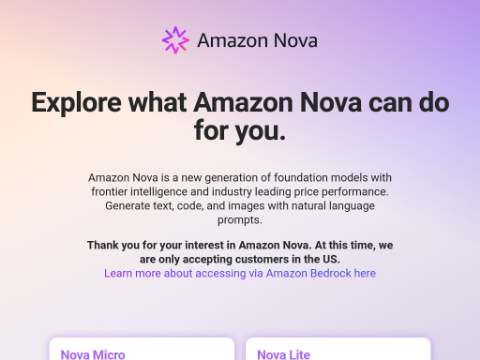Microsoft has launched the "Wave 2" spring update of Microsoft 365 Copilot, positioning the AI assistant as the core of what it calls "human-agent collaboration"—the next phase in how knowledge workers interact with AI tools within their daily workflows.
This update introduces several key new features, including AI-powered enterprise search, personalized memory functions, and dedicated "reasoning agents" specifically designed for complex analytical tasks. Microsoft is clearly betting that AI will fundamentally change the way work is done, and Copilot will become the primary interface in this new era of professional AI assistants.
Key Highlights:
- New dedicated "reasoning agents" called Researcher and Analyst offer deeper functionality for complex tasks.
- AI-driven enterprise search connects across various workplace applications and data sources.
- Copilot now builds personalized memory based on your interactions and work profile.
- The new "Agent Store" provides easy access to both Microsoft and third-party AI agents.
Microsoft 365 Copilot has adopted a sleek new design, bringing it closer to its consumer version. It is now explicitly described as "your gateway into the world of agents," with a user interface designed to make accessing different AI functions more intuitive. Soon, you'll be able to summon Copilot via a dedicated Copilot key or the Win + C shortcut on Windows 11 PCs—bringing these AI tools directly "into your workflow."
The new Agent Store may represent the clearest sign of this direction, creating a marketplace for professional AI tools from Microsoft and partners like Jira, Monday.com, and Miro. As such, Copilot acts as an operating system for AI agents—users can summon different specialized assistants for specific tasks.
Microsoft's two new reasoning agents—Researcher and Analyst—highlight the company’s push toward more specialized AI tools. Researcher handles complex, multi-step research tasks, while Analyst offers data science capabilities to turn raw data into insights. Both leverage OpenAI’s "deep reasoning models" and are currently being rolled out through Microsoft’s Frontier program.
Another significant addition is Copilot Notebooks, which allows users to gather various content types (documents, notes, websites, meeting recordings) into a central location where Copilot can analyze and synthesize information. Interestingly, Notebooks can even generate podcast-style audio summaries, hosted by dual narrators guiding users through key points.
For creative tasks, the new Create feature brings OpenAI’s GPT-4o image generation capabilities into the workplace, enabling users to modify branded images or generate new visuals that align with corporate guidelines. Microsoft emphasizes how this "unlocks design skills for everyone," reflecting the broader trend of AI democratizing previously specialized expertise.
These updates also include significant enhancements to Microsoft’s governance tools, with new features in the Copilot Control System allowing IT administrators to have more granular control over which employees can access specific AI agents and what data these tools can interact with.
Collectively, these changes mark Microsoft’s broader vision for workplace AI—not just as standalone tools but as an integrated ecosystem of professional agents working alongside humans. The shift in terminology—from “AI assistants” to “human-agent collaboration”—reflects a subtle but important evolution in how Microsoft wants customers to conceptualize these tools.
For businesses still developing their AI strategies, Microsoft’s direction offers a glimpse into how workplace AI might evolve—from general-purpose assistants to more specialized tools that can be summoned and dismissed as needed, all while maintaining centralized governance and security controls.
Updates to Microsoft 365 Copilot are now available, with some features (like reasoning agents) initially offered through the company’s Frontier program.








